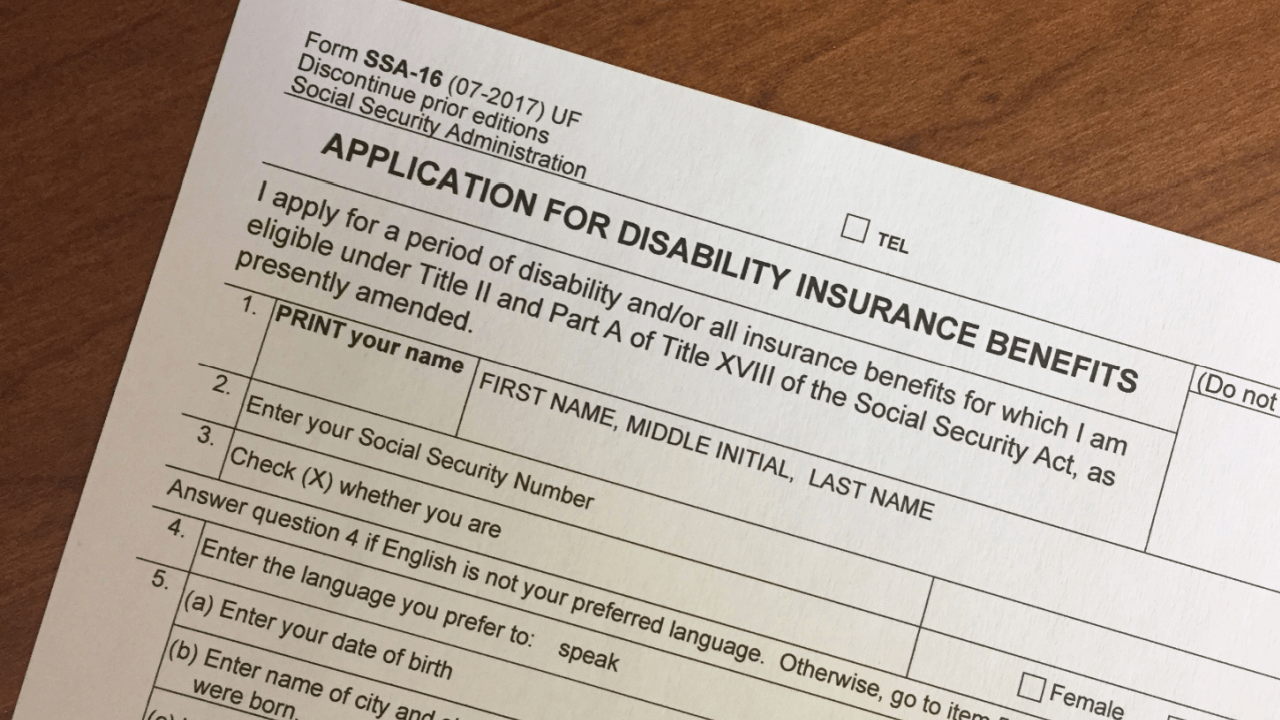
Who Is Not Eligible for SSDI? Complete Exclusion Guide
Common Disqualifications: Who Is Not Eligible for SSDI?
Who is not eligible for SSDI? The Social Security Administration has strict requirements that automatically disqualify certain applicants from receiving disability benefits. Understanding these exclusions can save you time and help you explore alternative options if your situation doesn’t meet federal guidelines.
SSDI eligibility depends on work history, medical conditions, and income limits. Many people assume they qualify without understanding the specific requirements that determine approval or denial.
Work History Requirements: Insufficient Credits Block Approval
The Social Security Administration requires specific work credits to qualify for SSDI benefits. You need 40 work credits total, with 20 earned in the last 10 years before your disability began. Each credit represents approximately three months of work. For detailed work credit requirements, visit the official SSA benefits eligibility page at ssa.gov/benefits/disability.
Who is not eligible for SSDI based on work history? People who haven’t worked enough quarters, young adults with limited work experience, and individuals who worked primarily in cash-based jobs without reporting income to Social Security.
Workers who earned income but didn’t pay Social Security taxes also face automatic disqualification. This includes some government employees, railroad workers covered under different systems, and individuals who worked exclusively for employers who didn’t withhold proper taxes.
Medical Condition Standards: Not All Disabilities Qualify
Temporary Conditions Don’t Meet Requirements
SSDI only covers permanent disabilities expected to last at least 12 months or result in death. Short-term injuries, temporary illnesses, and conditions with expected recovery timelines don’t qualify for benefits.
Partial Disabilities Face Rejection
The program doesn’t provide benefits for partial disabilities. You must prove complete inability to work in any capacity. People who can perform light work, part-time employment, or modified duties typically don’t meet the medical severity standards.
Income Limits: Who Is Not Eligible for SSDI Due to Earnings
Substantial Gainful Activity (SGA) limits automatically disqualify working applicants. In 2024, earning more than $1,550 monthly ($2,590 for blind individuals) makes you ineligible regardless of your medical condition. Current SGA amounts are updated annually by the Social Security Administration’s official SGA guidelines at ssa.gov/oact/
Who is not eligible for SSDI based on income? Active workers earning above SGA thresholds, business owners with significant monthly profits, and individuals receiving other substantial benefits that exceed federal limits.
Trial work periods allow some earning flexibility, but consistent income above SGA levels results in benefit termination.
Age and Duration Restrictions
Under-18 Applicants Need Different Programs
Children cannot receive SSDI benefits directly. Minors with disabilities may qualify for Supplemental Security Income (SSI) instead, which has different eligibility requirements and benefit amounts. Learn more about SSI benefits for children at the official SSA children’s benefits page at ssa.gov/
Recent Disability Onset Issues
Your disability must have lasted or be expected to last at least 12 months. People with conditions lasting less than one year, even severe ones, don’t meet the duration requirement for SSDI approval.
Legal and Behavioral Disqualifications
Certain behaviors and legal issues create automatic SSDI disqualification. Drug addiction and alcoholism as primary disabling conditions don’t qualify for benefits. However, if you have qualifying medical conditions unrelated to substance abuse, you may still be eligible.
Criminal activity that causes your disability typically results in benefit denial. People injured while committing felonies or whose disabilities stem from illegal activities face automatic rejection.
Asset Considerations: Who Is Not Eligible for SSDI?
While SSDI doesn’t have strict asset limits like SSI, certain wealth factors can affect eligibility. People receiving significant investment income, rental property profits, or other unearned income above SGA limits may face disqualification.
Business ownership doesn’t automatically disqualify applicants, but active management and substantial profits can demonstrate work capacity that contradicts disability claims.
Understanding Exclusions: Who Is Not Eligible for SSDI Summary
Who is not eligible for SSDI? The Social Security Administration maintains strict guidelines to ensure benefits reach truly disabled individuals who cannot work. Understanding these requirements helps you determine whether to pursue SSDI or explore alternative disability programs that might better fit your situation.
Get Expert Help: Who Is Not Eligible for SSDI Guidance
Don’t navigate SSDI eligibility alone. Professional evaluation can determine whether your situation qualifies for benefits or if alternative programs better serve your needs. Contact our experienced disability advocates today to review your case and explore all available options.
Frequently Asked Questions
1. Who is not eligible for SSDI due to age restrictions?
Children under 18 cannot receive SSDI directly but may qualify for SSI benefits instead.
2. Can people with partial disabilities receive SSDI benefits?
No, SSDI only covers total disabilities that prevent all substantial work activity.
3. Who is not eligible for SSDI based on work history?
Individuals with fewer than 40 work credits or insufficient recent work history don’t qualify.
4. Do temporary conditions qualify for SSDI benefits?
No, disabilities must last at least 12 months or result in death to qualify.
5. Who is not eligible for SSDI due to income limits?
People earning more than $1,550 monthly ($2,590 for blind individuals) don’t qualify.
Key Takeaways
- Work credit requirements disqualify people with insufficient employment history
- Temporary disabilities lasting less than 12 months don’t qualify for SSDI benefits
- Earnings above Substantial Gainful Activity limits result in automatic disqualification
- Partial disabilities that allow any work capacity prevent SSDI approval
- Drug addiction and criminal activity-related disabilities face automatic denial


